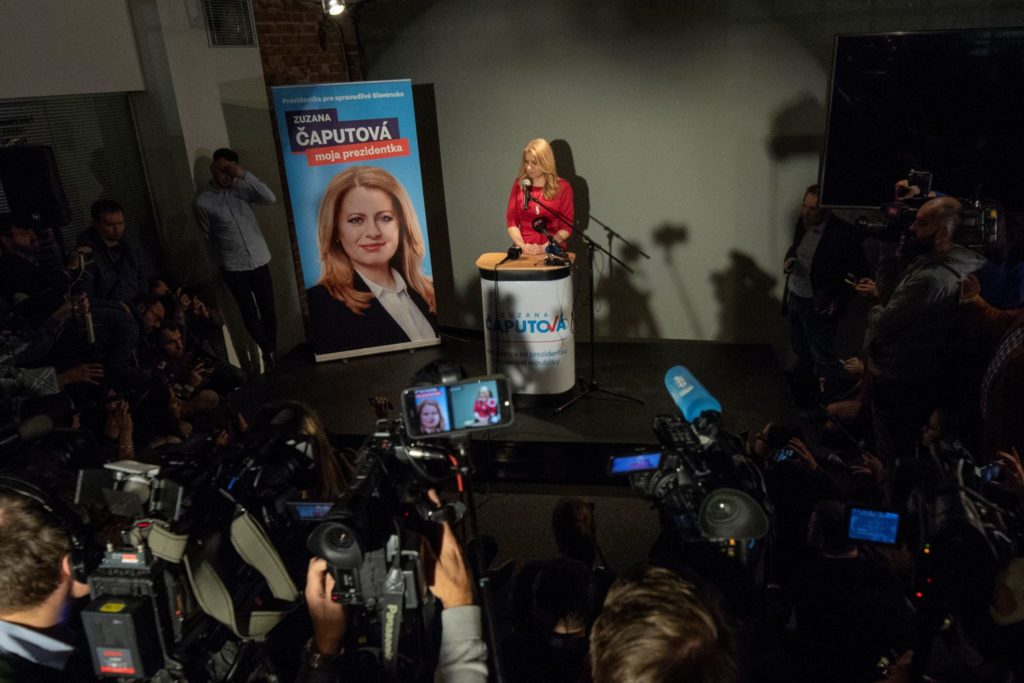From Slovakia, a new way to counter political toxicity?

Zuzana Caputova in Bratislava, Slovakia
The following sentence jumped out at me in reports of Zuzana Caputova’s stunning election as Slovakia’s first female president: “Riding a wave of popular discontent over widespread corruption but refusing to engage in personal attacks on her opponents, she vowed to return a sense of decency to Slovakia’s often toxic political climate.”
Does that say it all as we seek to battle communalism, ethno-nationalism and poisonous populism?
Consider the way Ms Caputova – a 45-year-old lawyer, activist and political newcomer – spoke after her victory.
“Maybe we thought that justice and fairness in politics were signs of weakness,” she told a crowd of supporters around midnight. “Today, we see that they are actually our strengths. We thought that the barrier between conservative and liberal is unbreakable, but we managed to do it.”
And consider her sense of engagement with the challenges that faced her country. Much before the election, she said she couldn’t sit on the sidelines after a young Slovak journalist, Jan Kuciak, and his fiancée, Martina Kusnirova, were shot and killed by a hit man hired to stop investigations of government corruption. So she joined the thousands protesting the killings on the street. They were the largest protests since the Velvet Revolution three decades ago.
Later, Ms Caputova joined Progressive Slovakia, a new liberal party with no parliamentary representation. Her basic agenda was simple: civility in public life and transparency in government.
Her campaign slogan was about the same sort of hope and basic civility. “Let’s fight evil together,” it said. The reference to “evil”, Ms Caputova explained, was not about individuals but their actions.
That sounds like the way to go in many parts of the world. In Trump-led America, Brexit-charged Britain, Modi-led India, Orban-led Hungary and elsewhere.

